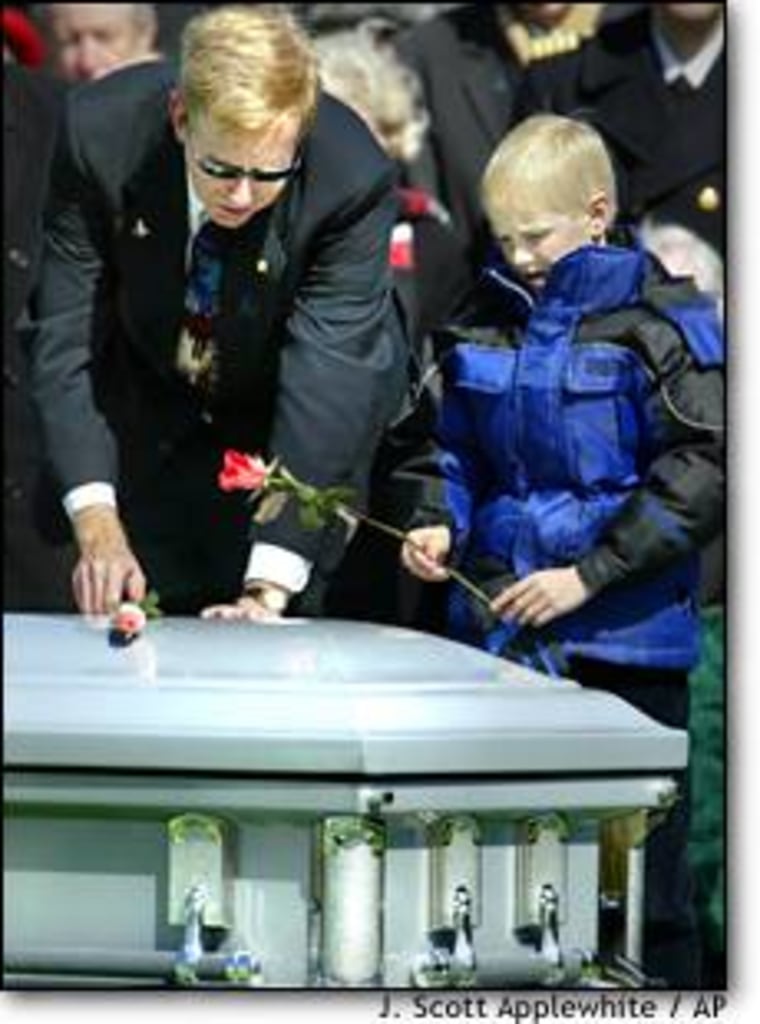Her husband and their 8-year-old son would sprint past her in a race to the mountaintop, and Laurel Blair Clark would amble behind, absorbing each smell and sight nature could offer in the hikes she loved to take. “She knew the journey was more important than the destination,” Jon Clark recalled at her funeral Monday.
Laurel Clark's final journey ended Feb. 1 aboard the Columbia space shuttle, but not before she flashed a wide grin for the shuttle camera to show the world “she was loving life,” her husband said.
On what would have been her 42nd birthday, Clark was laid to rest with military honors at Arlington National Cemetery. She will be buried beside two other Columbia crew mates and just a few feet from where the unidentified remains of Challenger astronauts are interred beneath a granite memorial.
Blustery winds ruffled the American flag draped atop Clark’s coffin as it was taken by caisson to the cemetery. The graveside service began with a “missing man” formation flyover, in which one of four jets that roared above the crowd peeled away, soaring high out of sight into the nearly cloudless sky.
As the U.S. Navy Band played “America the Beautiful” and the honor guard folded the flag, Clark’s husband leaned over to their son, Iain, and helped place the boy’s right hand over his heart.
When an admiral leaned in toward him to offer his condolences, the boy reached up and fingered the shiny medallions dangling from the officer’s uniform.
Iain rose quietly with his father, and each placed a single pink rose on top of Clark’s silver casket. He squeezed his dad’s hand when emotions threatened to brim into tears.
Clark worked as a submarine doctor for the Navy before she joined NASA in 1996. She was born in Iowa but grew up in Racine, Wis., which she considered her hometown. She lived in the Houston area with her family before the fatal space mission. The Columbia flight was her first assignment in space.
Top military officials, along with NASA Administrator Sean O’Keefe, posthumously awarded Clark three medals for her distinguished service to her country, including her research into links between prostate cancer and bone cells.
In his eulogy, Jon Clark said his wife loved being outdoors, whether it was on a hiking trail or underwater in a scuba suit. He recalled her infectious optimism toward life and her devotion to sharing her adventures with children.
He joked that his wife learned “real tolerance” from him, and compared himself to sand found inside an oyster.
“She made a pearl out of me,” he said.
